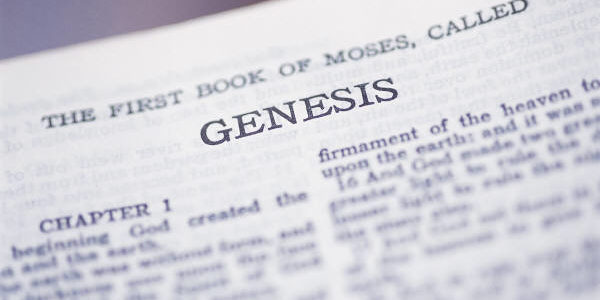
What is the Bible all about?
By Fred Zaspel–
 photo source
photo source
What is the Bible all about? What is its primary purpose in writing and its leading theme? We find the answer to our question when we examine the beginning and the end of Scripture. At the beginning God creates the world and all that is in it. We may be sure that he did this for his own glory, for this is his purpose in all he does. His creation is designed to reflect his glory. Humanity in particular was created for God’s glory, and this is our whole reason for being — to glorify God.
But we have fallen from our created purpose. With the entrance of sin through our father Adam (Genesis 3), humanity and all the created order has fallen under a divine curse. The whole created order is out of sorts — there is pain and suffering and injustice and death. And there is sin, rebellion against our creator. The curse of God upon the human race is evident in each broadcast of the evening news and in the experiences of our own lives. Through sin we are out of sorts with our creator, and as a result our world has been plunged into chaos and misery of every kind.
But at the entrance of sin God not only spoke in judgment. He also spoke in grace and in promise. He promised that a champion would come to defeat the tempter and reconcile us to God. The root problem — our sin — would be corrected, and all of creation would be restored to its created purpose. All this we find at the beginning of our Bible.
The end of our Bible (the book of Revelation) records the end of the story. History climaxes in a new heaven and a new earth, a new world in which God dwells with his people and his people bask in the glorious presence of God their creator. This blessedness is secured for us, we read, by that promised champion, who by now we know is the Lord Jesus Christ. From beginning to end, he is the theme.
Reading our Bible from the perspective of the beginning and the end enables us to gain a right perspective of the whole and all its parts. Throughout the Old Testament the redeemer is anticipated. The promise given and expanded. At the same time the world at large and God’s people in particular (Israel) demonstrate continuously their need for this redeemer. Kings, princes, the people at large, and even prophets fail. Humanity is so given over to its sin that it cannot stop. There is universal abandonment to sin and universal enmity with God. And no king is powerful enough or faithful enough to bring even God’s people — let alone the world at large — to cease from their sinning or into fellowship with God. So the promise is that God will send his servant to fix the entire mess. The whole, overall theme of the first half of the Bible is this — “He is coming!” Over and again the promise is reiterated — “He is coming! God has promised a redeemer! In fact, God has promised that he will himself come to our rescue!” And the Old Testament ends with the promise outstanding. The need for a redeemer remains, but the promise is left unfulfilled — “He is coming!”
The New Testament, in turn, makes the happy announcement, “He is here!” — from promise to fulfillment. Matthew and the other Evangelists (the Gospel writers, Matthew-John), introduce Jesus Christ to us as the redeemer whom God had long promised. And so they tell us about his arrival and his life and teachings and miracles, but they tell us particularly of his death and resurrection. They are careful to tell us that Jesus Christ died as the redeemer in place of sinners and has for his people exhausted the curse of God against their sin. Accordingly, he was raised from the dead in triumph and in glory. He has successfully accomplished his assigned saving work. In Acts this message is taken to the world, and the epistles spell out the significance of all this for us in more detail. And in Revelation, as we have seen, it all comes to climax in Christ’s glorious return as judge and as savior, when his redeeming work is brought to final completion and all his people stand in glory with him in the presence of the Triune God.
And so in the end, creation reaches its original design — the glory of God the creator. Humanity is saved, and with it the whole created order is rescued from the divine curse against sin and restored to fellowship with God. The divine purpose is accomplished, and all the redeemed will be gathered to sing his eternal praise. God our redeemer has come and will come again to complete his promised saving work in Jesus Christ — this is the whole centerpiece and theme of the Bible.
Fred Zaspel holds a Ph.D. in historical theology from the Free University of Amsterdam. He is currently a pastor at the Reformed Baptist Church of Franconia, PA. He is also the interim Senior Pastor at New Hyde Park Baptist Church on New York’s Long Island, and Adjunct Professor of Systematic Theology at Calvary Baptist Seminary in Lansdale, PA. He is also the author of The Continuing Relevance of Divine Law (1991); The Theology of Fulfillment (1994); Jews, Gentiles, & the Goal of Redemptive History (1996); New Covenant Theology with Tom Wells (New Covenant Media); The Theology of B.B. Warfield: A Systematic Summary (Crossway, 2010). Fred is married to Kimberly and they have two grown children, Gina and Jim
